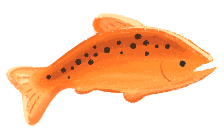This is a global movement for open, inclusive, and actionable data-driven research.
We’re excited to connect.


This is a global movement for open, inclusive, and actionable data-driven research.
We’re excited to connect.

Please email us if you’re interested in booking cohorts, partnering with us, sponsoring our initiatives, or sharing your wild ideas.
October 31, 2025
Applications are now closed for the NASA Openscapes Suborbital Team Member. We received 36 applications for this role and will be planning our interview rounds in the coming weeks.
Openscapes holds regular community calls, participates in conference talks, webinars, and organizes opportunities through the Champions Program and other initiatives. Browse our events listings and register to attend!